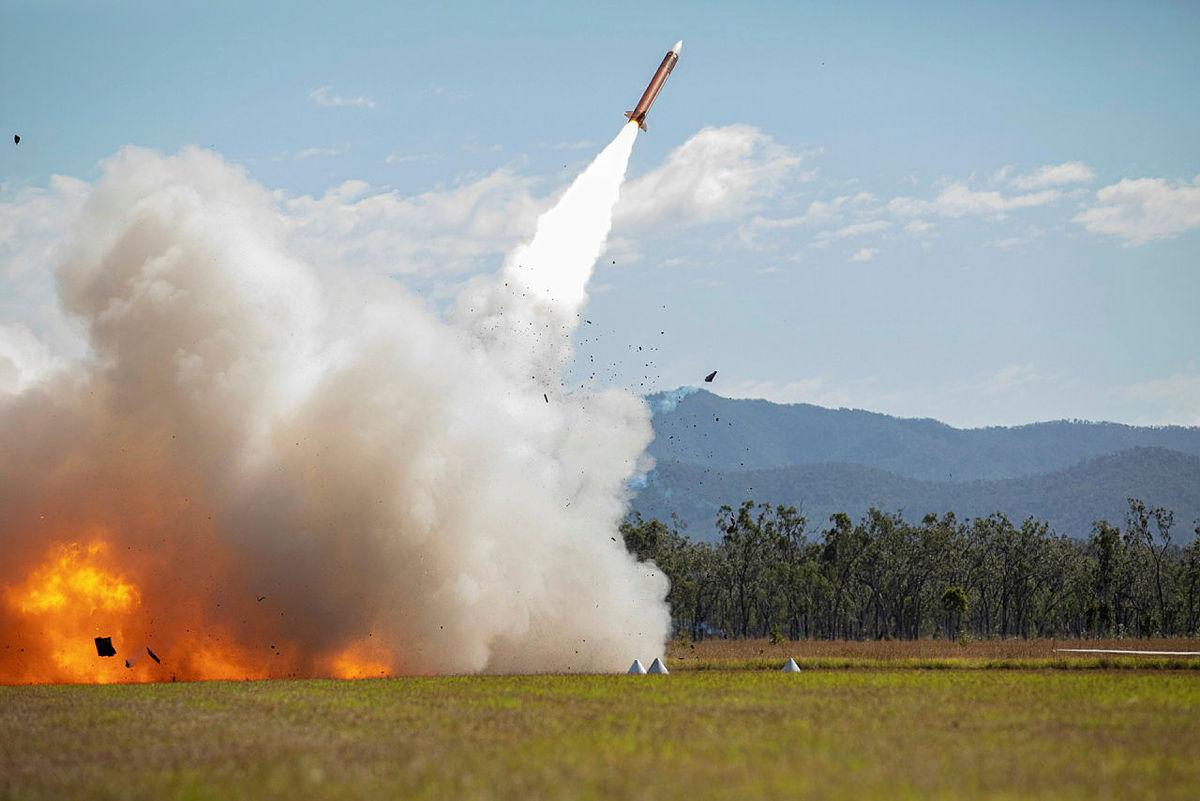
In a recent article on this forum, Peter Dean argued that a rethink of the Australian Defence Force’s land-based strike requirements is needed to ensure it won’t be outgunned both qualitatively and quantitatively in a future conflict. His proposed solution is for the Department of Defence to expand the Land 8113 project and equip the Australian Army with land-based Tomahawk missiles.
The concept underlying the argument is sound, but the proposal doesn’t go far enough.
Several issues require examination.
The first is the accepted concept of placing a potential adversary at risk early. This requires long-range precision-guided weapons. Something akin to the Tomahawk or LRASM (long-range anti-ship missile) is the answer.
The second is to put in place a believable deterrence capability. Deterrence is defined by the Oxford dictionary as ‘the action of discouraging an action or event through instilling doubt or fear of the consequences’—that is, the potential adversary needs to understand that it has actually been placed at risk. Again, something akin to the Tomahawk or LRASM is required, together with the necessary surveillance, targeting and datalink capabilities.
As outlined by Dean, the third aspect is the ability to deploy, both for operational flexibility and for protection. Something akin to a land-based, mobile Tomahawk or LRASM would be suitable.
The fourth issue is potentially the most important and concerns the risk of resupply. This is where a sole focus on the Tomahawk starts to fall over.
Given that we’re likely to be participating in the same fight as the Tomahawk supplier, it’s difficult to see how we would have suitable options for resupply once our stockpiled weapons had been fired. After all, the US will need every weapon coming off the production line for its own forces. That means the Tomahawk or LRASM can be the answer only in the short term to provide an immediate capability.
The fifth issue concerns risks and alternatives. Resupply risks at the critical time will be high, and stockpiled missiles have a shelf life measured in years, not decades. Stockpiling is not the answer. We need to design and build our own land-based long-range and hypersonic weapons here. The ADF needs weapons that don’t have to be integrated into complex platforms but can be fired ‘from the back of a truck’. It needs weapons fitted to platforms that don’t require complex maintenance regimes or highly trained personnel.
Designing and building this type of missile here will provide part of the asymmetric capabilities that Australia needs. It will contribute to the development of the believable deterrent posture that Australia needs but doesn’t have. An extra ship, an extra couple of planes and additional tanks are not going to make any real difference. The ability to manufacture and deploy large numbers of domestically designed hypersonic weapons will.
The usual retort to such a suggestion is that the design and build of guided weapons is long term, expensive and beyond the capability of the Australian defence industry to deliver. (The subtext to this argument is that it’s cheaper and easier to just buy from overseas and stockpile.)
Australia’s defence industry has proven itself time and time again as being capable of developing advanced technologies for defence purposes, but the cultural cringe within the Defence Department typically forces these local developments into the loving embrace of the global primes.
The local industry is replete with companies capable of contributing to a domestic effort to build long-range hypersonic missiles: flight vehicle and sensor design and manufacture, propellant technology, command and control systems, integration with the firing platform.
There’s no doubt that the process to develop hypersonic weapons will be long and expensive, but it’s not a question about cost and ease. It’s a question of risk, and particularly the risk of not developing this capability here, to meet our own requirements, for our own use, when and where we might need to use it. Not developing these weapons will see us expend large amounts of resources on a finite stockpile that cannot be replenished when we need it to be.
There’s a popular proverb that says: ‘The best time to plant a tree was 20 years ago. The second best time is now.’
It’s time to get cracking.